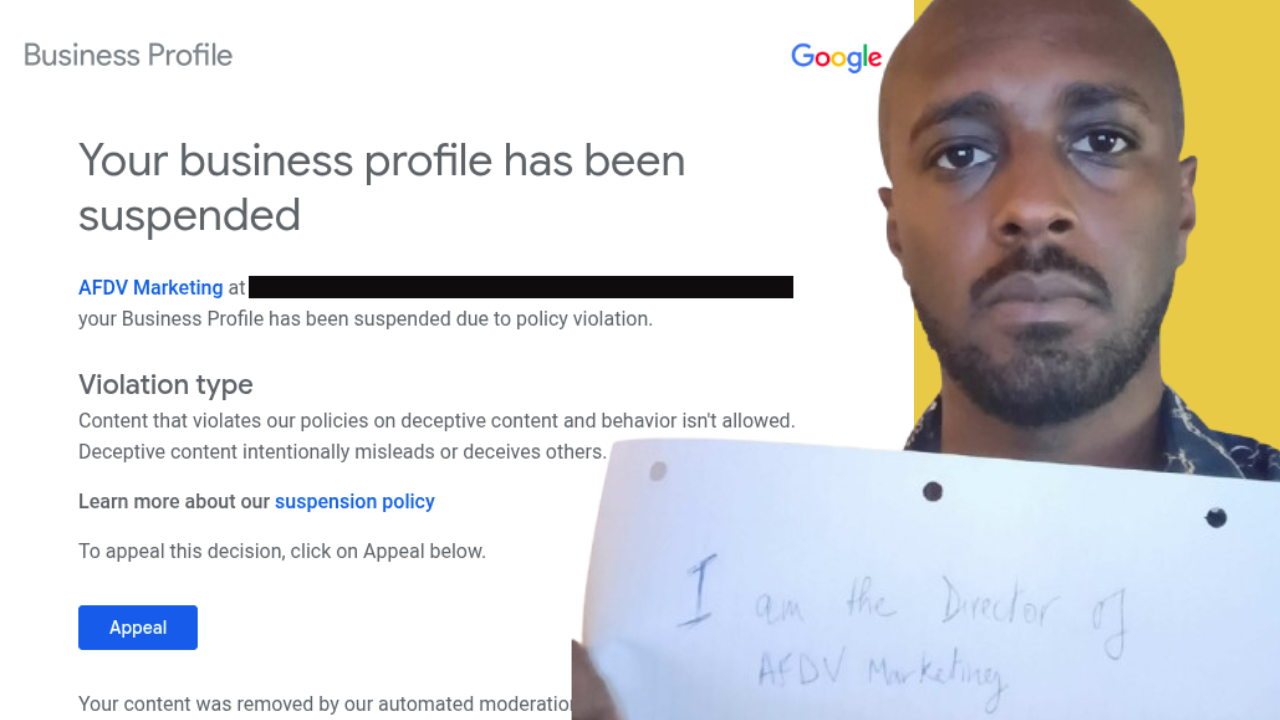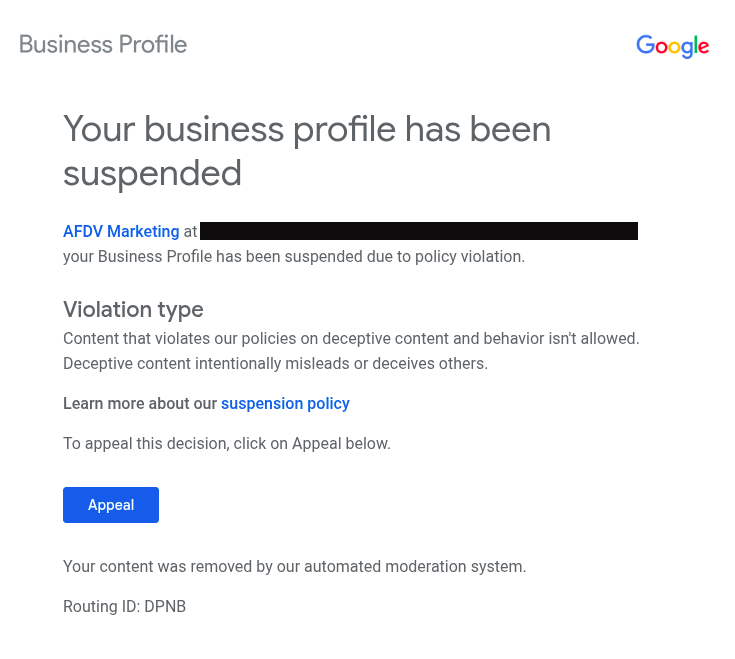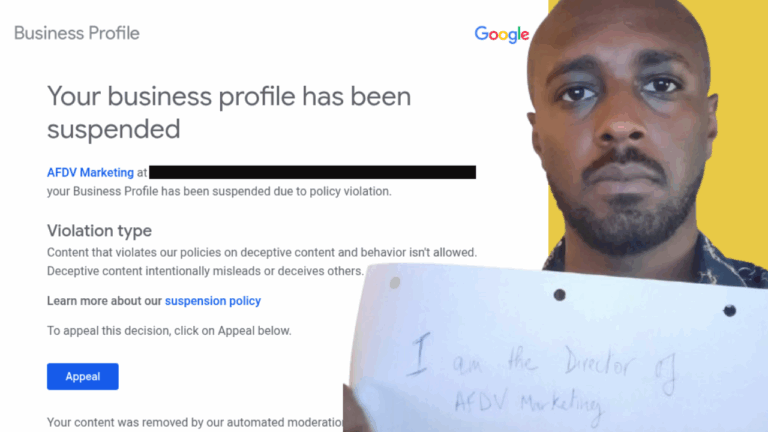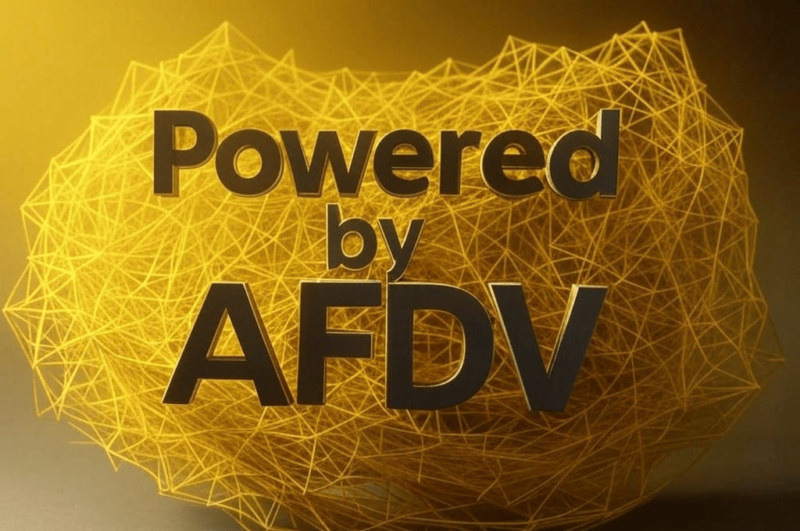A few days ago, I was in a meeting with a potential client when she said something that stopped me in my tracks:
“I’m just not sure I trust you yet.”
That one sentence exposed a critical flaw in my business. I’d been so focused on the work—the strategy, the execution, the results—that I’d neglected to tell my own story. And in the world of digital marketing, when you don’t control your narrative, you leave a vacuum of doubt.
That conversation was the wake-up-call. I decided right then to be more transparent and build the public-facing credibility AFDV deserved. But as I took my first step, I stumbled directly into a trap that got my Google Business Profile suspended for using a virtual office.

This isn’t just a story about a mistake. It’s a real-time look at what it takes to build—and rebuild—trust online.
The Journey from a Halifax Hustle to a Trust Gap
To understand the problem, you need to know the story. AFDV was born at 2 AM in a Halifax university dorm room. On a hunch, I made my first cold call to a dental clinic in Australia and landed a meeting. That was all the validation I needed to launch my own SEO agency.
For years, word-of-mouth and referrals from my network were enough. My diverse background—from analytical mechanical engineering to frontline sales—gave me the skills to deliver results, and the business grew. We became a full-service digital marketing agency, and I traveled the world, working remotely and volunteering.
But I confused being private with being professional. I never asked for reviews. I never published case studies. I never told our story. That silence created the trust gap my potential client saw so clearly.
The Virtual Office Mistake That Got My Google Business Profile Suspended
Motivated to fix this, my first step was to ensure our marketing was fully compliant with Canada’s Anti-Spam Legislation (CASL), which requires a valid physical address on all commercial emails. As a remote-first agency, a virtual office in Toronto seemed like the perfect solution.
I signed up for a service, updated my Google Business Profile (GBP) with the new address, and felt a sense of accomplishment.
That feeling was short-lived. I soon received the dreaded email from Google: our listing had been suspended for “deceptive practices.”
My mistake? I had signed up for a simple mail-forwarding service. Google’s guidelines explicitly state that to be eligible for a GBP listing, an address must be a staffed physical location where you can receive clients. A mail-forwarding address or a virtual office without permanent signage and staff does not qualify. I hadn’t read the fine print on either side, and I paid the price.

The Path to Reinstatement: The Appeal and the 11-Hour Wait
My heart sank, but panic doesn’t solve problems. I immediately corrected the error. I reverted my Google Business Profile back to a “service-area business,” which hides the physical address—the correct setup for a remote company like mine.
Then, I submitted a reinstatement appeal to Google. I provided documentation proving our business legitimacy, explained the mistake clearly and honestly, and outlined the corrective actions I had taken.
As I write this, it has been 11 hours since I submitted the appeal. The wait is nerve-wracking. Your Google Business Profile is a critical asset for local SEO and client trust. But I’ve done what I can, and now the process is in their hands. Owning your mistake is the first step; taking action to fix it is the second.
4 Lessons on Building Trust After a Google Suspension
- Transparency is Non-Negotiable. You must proactively tell your story, share your successes, and yes, even own your mistakes. Silence breeds suspicion.
- Compliance is Your Responsibility. Platform policies and federal laws like CASL are not just suggestions. Read the fine print. Ignorance is not a defense and can instantly shatter the trust you’re trying to build.
- Visible Proof Builds Credibility. Conversations are great, but testimonials, reviews, and case studies are the currency of trust in a digital world. Don’t wait for clients to offer them; build a system to ask for them.
- Focus Creates Deeper Trust. By niching down, you become a true expert. For our clients—like Registered Canadian Immigration Consultants (RCICs), language schools, and nonprofits—deep industry knowledge is a prerequisite for trust. We’re not just marketers; we’re partners who understand their specific challenges.
The Path Forward
This journey of owning our narrative is just beginning. It’s a humbling process of reconnecting with past clients, asking for their feedback, and being more public about who we are and what we stand for. Whether you’re an event planner or a language school, the principles are the same.
This post is part of that commitment.
If we’ve worked together in the past and AFDV made a positive impact on your business, I would be incredibly grateful if you would share your experience. It’s a small act that helps us rebuild and close that trust gap for good.
You can find us here:
Thank you for being part of the story.
With love,
Alioune.






